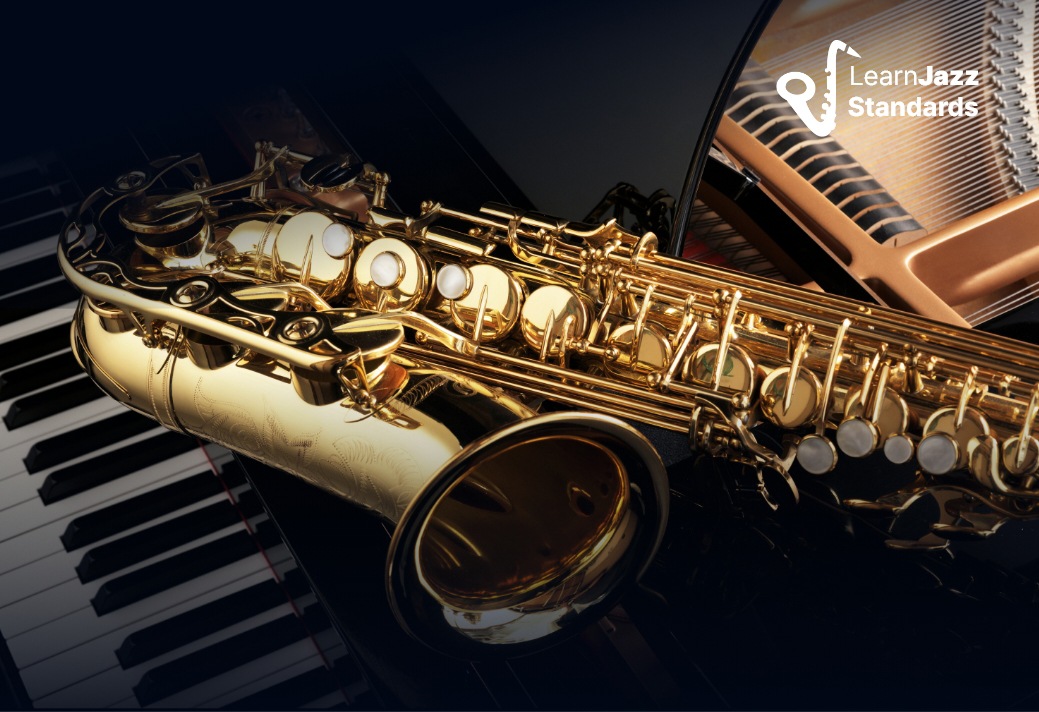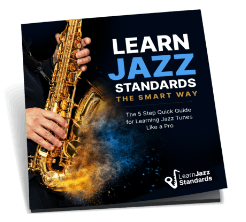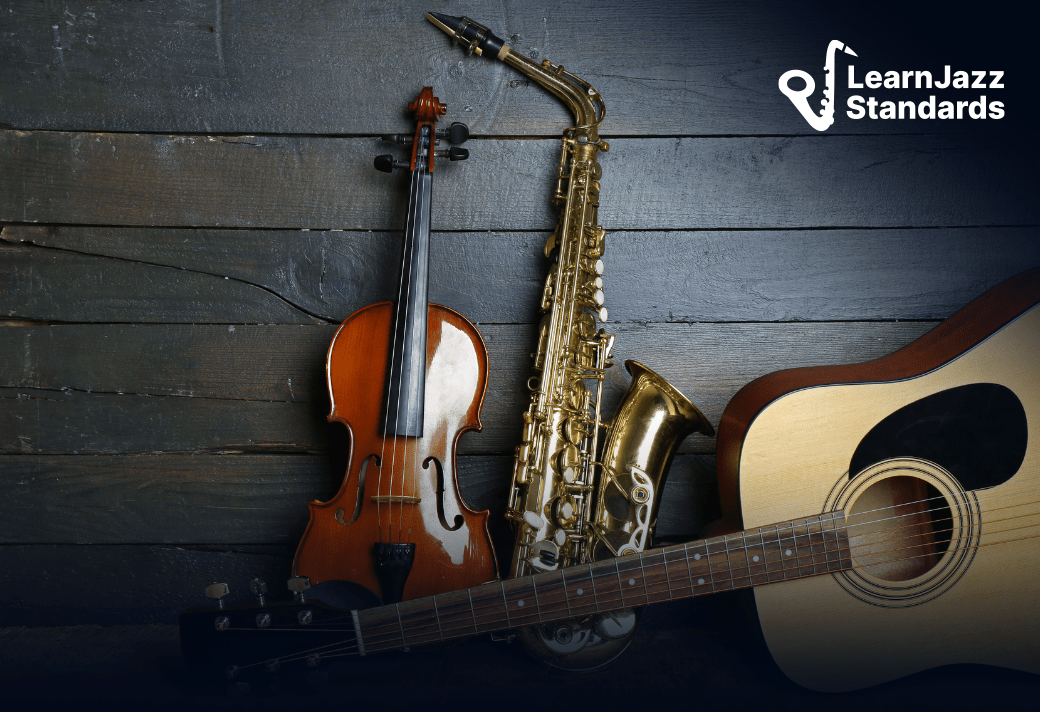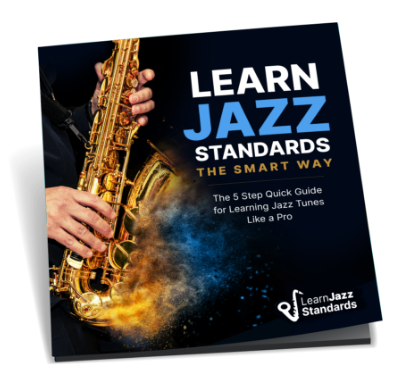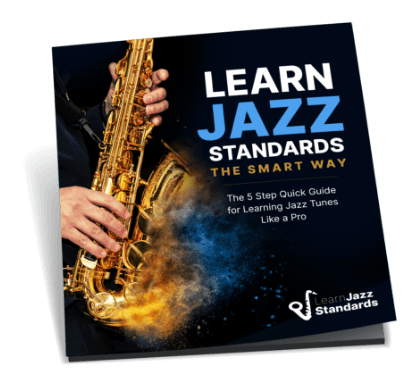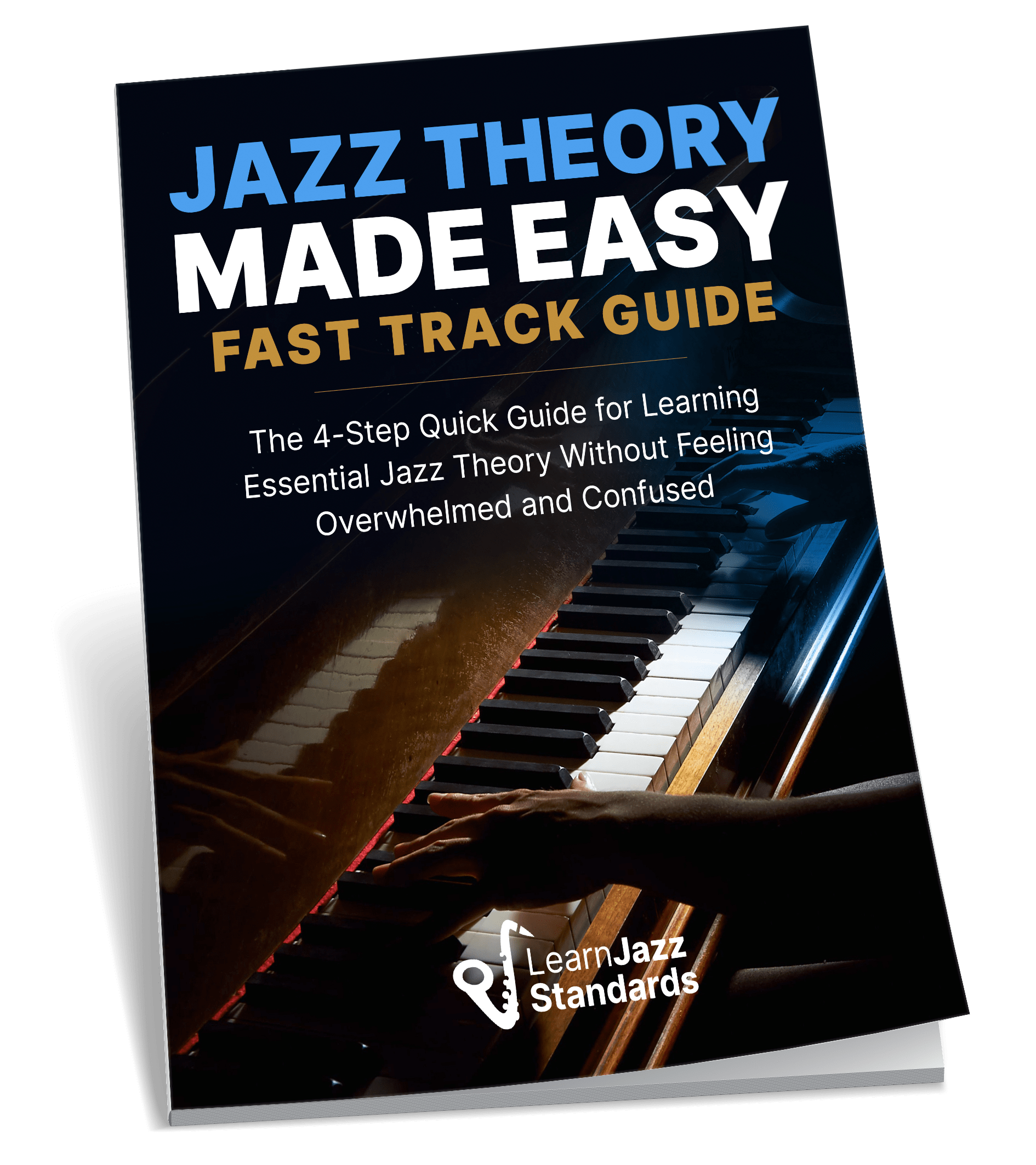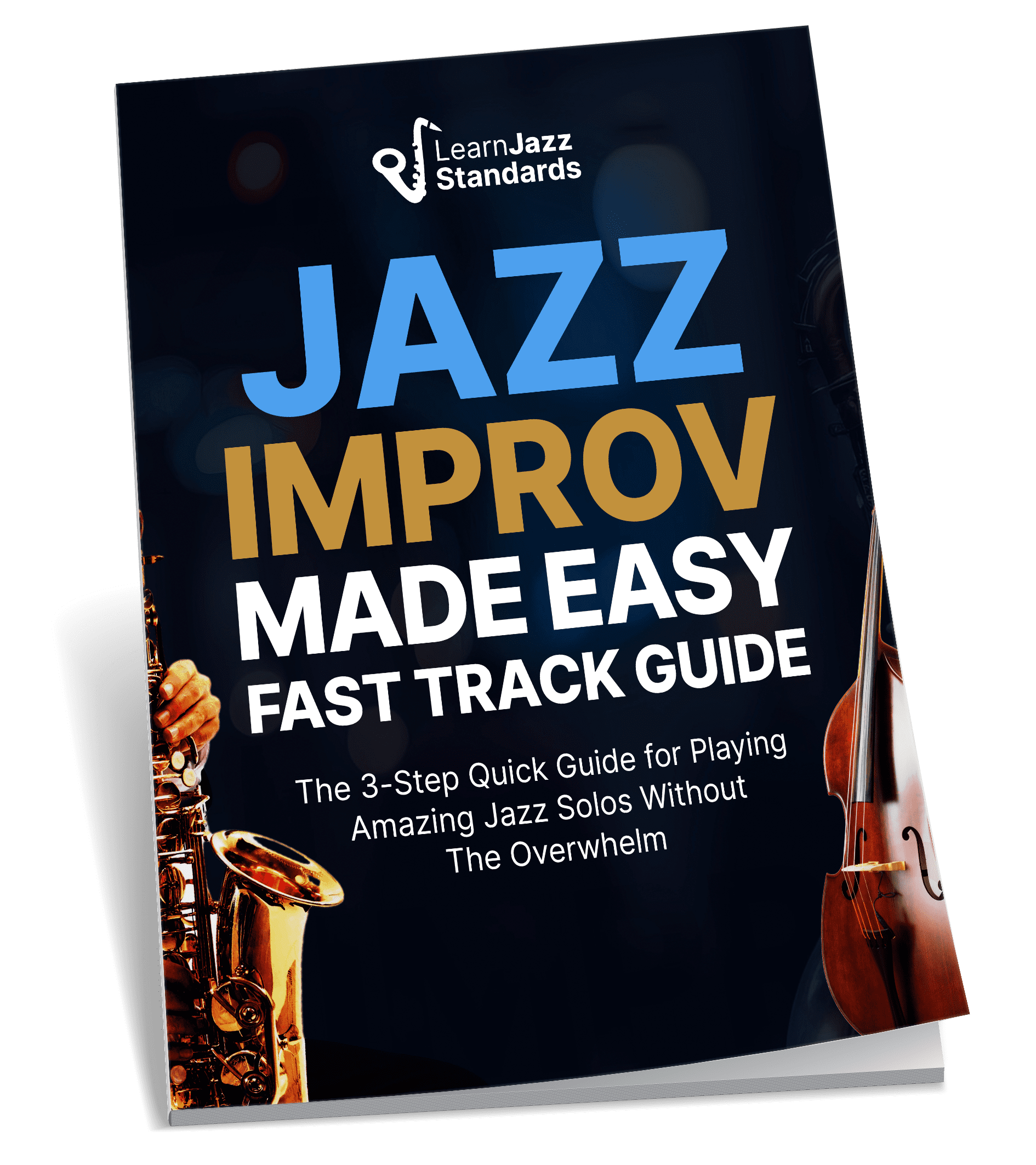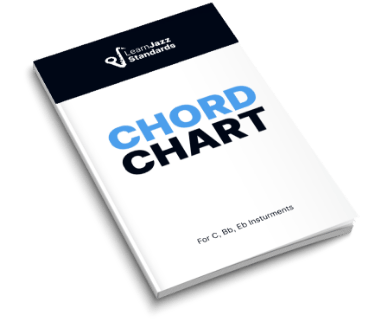Often when we think of jazz greats such as Charlie Parker, John Coltrane, Louis Armstrong, Sonny Rollins, and a host of others, we think of them as icons of immeasurable talent. In jazz circles these musicians seem to be considered “gods among men”.
You often hear others speak of them, saying: “No one will ever be quite as good as they were.” Essentially their musical accomplishments have been perceived with such grandeur, that often times we dismiss them as extraordinary beings with unusual amounts of natural talent. And indeed, their musical accomplishments are grand. The bar has been set high, there is no doubt.
But if you’ve ever read Malcolm Gladwell’s book Outliers, you know that talent is only a fraction of what has contributed to their success.
Was talent a factor at all in the success of these jazz musicians? Of course. No one can argue that Miles Davis or Wes Montgomery wasn’t talented.
But here’s the problem: I know a lot of people that are talented. I live in New York City, a bubbling metropolis that draws talented people from all over the world to pursue their careers. But all of the talented people in New York aren’t “successful” (success is a subjective term). In the musical realm, I see a lot of people who are incredibly talented, trying really hard, but no big opportunities seem to present themselves. They are forced to abandon ship. I see really talented musicians in less than desirable financial or social circumstances, often times holding them back from their true potential. In other words, talent alone will not make you “great”, “successful”, or whatever you want to call it.
Is it possible that there were contemporaries of Miles Davis and Wes Montgomery (and other jazz greats) that had equal amounts of talent, but never made the cut? Perhaps there are hundreds or thousands of mind-blowing musicians we will never know about.
Gladwell argues throughout his book on a number of factors that play into or hinder the success of ordinary individuals. But drawing from his ideas, two important factors that stick out when considering the success of jazz greats are Opportunity and Practice.
Opportunity is simply what events or circumstances presented themselves to the musicians that aided in their success.
Practice is how much time and effort did the musicians put into honing their craft. Did they take advantage of their talent by nurturing it through practice and playing? Gladwell describes what he calls the “10,000 hour rule”, which states that it takes roughly 10,000 hours to truly master a craft. That’s a lot of hours.
What is important to realize is that Opportunity and Practice go hand in hand. Without opportunity, it may be difficult to spend enough time honing ones musical skills. Without practice, opportunities and talent are wasted.
To demonstrate this, let’s take a look at the lives of two important jazz greats: Charlie Parker and John Coltrane. By examining their lives and careers we can learn a lot about Opportunity and Practice and how these aided in their success.
Charlie Parker
What is important to understand, is Charlie Parker was raised in Kansas City, Missouri in the 1920’s. What’s so significant about Kansas City in the 1920’s? At the time Kansas City was a booming cultural center of African-American music, which included jazz, blues and gospel. In other words, Charlie Parker grew up surrounded by music. He had the opportunity of hearing a lot of amazing musicians come through his city.
Another important thing to consider is Parker’s father, though he worked on the railroad and was an alcoholic, was a trained pianist, dancer and singer. So even though his father wasn’t around very often, this would have had a big impact on his life. Allegedly, when his father eventually abandoned the family, his mother gave him a saxophone to help cheer him up.
In public school he started taking music lessons, and while he was still in school he started playing the local club scene in Kansas City. Eventually he dropped out of school altogether to pursue a full time career in music.
Now let’s stop here for a second. Raised in a huge center for African-American music. A parent who was a trained pianist, dancer, and singer. Access to music lessons and band classes in public school. A city where he could get actively involved in the local music scene. Sounds like some pretty good musical opportunities right? Let’s move on.
Charlie Parker, now dropped out of school, was actively playing in the local scene in jazz and blues bands. In 1938 he was playing in Jay McShann’s band which toured Chicago and New York.
If you struggle to learn jazz standards by ear, memorize them, and not get lost in the song form, then our free guide will completely change the way you learn tunes forever.BEFORE YOU CONTINUE...
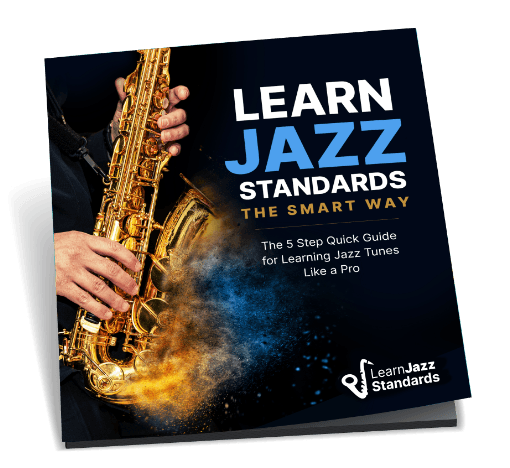
Chicago and New York. Huge centers for jazz during this time. He held a regular gig in Chicago for a while before ultimately deciding to move to New York permanently.
So living in a city with a great music scene helped him land a gig with a band that went on tour, which allowed him to branch out to two big music scenes, and led him to New York City- the hub of jazz music at the time (and still today).
Now from New York, this is where things really started to blossom for Charlie Parker. It was just a domino effect from here on out. Dizzy Gillespie and Thelonious Monk heard him play and were struck by his style of playing. He got a gig with Earl Hines. He joined Billy Eckstine’s band. In 1945 he really made a break through as he started leading a band with Dizzy Gillespie as his sideman. They were pioneering bebop. Pretty soon he was the new big thing and everyone wanted to play with him.
Living in New York allowed him numerous opportunities to be heard and to play with other brilliant musicians. Sounds like a lot of opportunity to me.
But let’s not forget the other side of this story. The Practice side. As I said before, without practicing, the talent he possessed and the opportunities he was given would have been in vain.
In 1954, saxophonist Paul Desmond did an interview with Charlie Parker where Parker said that he at one time was practicing 11-15 hours a day over a span of about 3-4 years. 11-15 hours a day? That’s an absurd amount of practicing. Think about that for a second. Perhaps Charlie Parker had some talent to start out, but imagine what happened to that talent when he started dedicating that much time and effort to playing his horn.
But let’s not forget the most important part. Think about all of the opportunities he was getting to play. He was playing locally in Kansas City when he was a kid. He dropped out of school, so you can be sure he wasn’t spending his time doing mathematics; he was playing music. He started touring. He moved to New York where he was playing gigs constantly.
Think about all of that playing time he was getting. Is there any doubt that Charlie Parker’s opportunities opened up the flood gates to allow him to practice more?
John Coltrane
Unlike Charlie Parker, John Coltrane was not born in a booming music hub. He was born in Hamlet, North Carolina. However, his father (a taylor), was passionate about music and played several instruments. His mother was also an amateur musician.
Coltrane started playing the saxophone in his teens. He started playing alto saxophone in a community band as well as in his high school band. In 1939 his father passed away, and though his mother and other family members moved to New Jersey, he stayed back to finish high school.
In 1943, Coltrane moved to Philadelphia and he began studying at the Ornstein School of Music.
Now keep in mind, while he may have not had the same music scene opportunities Charlie Parker had when he was growing up, Philadelphia is where Coltrane’s opportunities really began to open up. During this time Philadelphia was a huge center for jazz. Jimmy Heath, Philly Joe Jones, McCoy Tyner, Lee Morgan, Reggie Workman, and a slew of others all came out of Philadelphia. And keep in mind that geographically, New York and Philadelphia are not that far apart. The jazz scene in Philly was booming.
All of this got interrupted though, by World War II. Coltrane was deployed in the U.S. Navy, but he never saw battle and he was stationed in Hawaii. This may seem like a big setback, and in a way I’m sure it was. But consider the alternatives. He could have been deployed overseas, and he could have been sent to battle. This is World War II after all. Instead he was able to “regularly perform” with his fellow sailors. Surely, much more time to continue honing his craft than others sent to the battle front.
When he got back to Philadelphia in 1946, he started studying at the Granoff School of Music and got involved in a number of bands. He joined Eddie Vinson’s band, Jimmy Heath’s band, and for a year and a half was a part of a big band lead by Dizzy Gillespie. In 1954, Duke Ellington chose him to temporarily replace Johnny Hodges in his orchestra, but unfortunately Coltrane’s heroine addiction lost him that job.
The big break was in the mid 50’s when Miles Davis asked him to join his band. We all know Miles’ album Kind of Blue, the Prestige Recordings, and many others. From here Coltrane would launch into his own career as a bandleader and he went on to become a huge innovator in jazz music.
Exposed to music at a young age through his parents. Access to music education throughout his adolescent and adult life. Able to play his horn regularly, even during war. Integrated into the booming jazz scene of Philadelphia. Made connections. Got big gigs. Opportunities; one building off of the other.
On the practicing side of things, it’s pretty clear that Coltrane’s opportunities allowed him to spend lots of time on his horn. Coltrane was also known as an obsessive practicer. His practice hours were similiar to that of Charlie Parker’s, and there are many stories, whether fact or fiction, of him spending hours upon hours playing just one note, or even falling asleep while practicing.
What can we as jazz musicians learn from Charlie Parker and John Coltrane?
-
Talent is not enough. You may think you have a lot of talent, or you may think you don’t have any at all. Regardless, talent alone will not guarantee you musical success. If you believe you are not talented, realize that musical success is still achievable. If you believe you are talented, realize that it means very little unless you nurture it.
- Look for opportunity. You may feel like you have been born into lots of musical opportunity. You may feel like you have been born into very little musical opportunity. Regardless, it is up to you to either take advantage of it, or seek it out. If you walk through one open door, it may lead to another, and then another. If you see no open doors, it could mean you just need to build your own, or move to a different house.
-
10,000 hours seems about right. Of course you could spend your 10,000 hours poorly. It’s possible you might not be practicing in a way that will produce real results. But at the end of the day, musical success is a result of time and pressure. The more time you spend, the closer you get to musical freedom and proficiency. There are no short cuts. Don’t just look for opportunities to sit in a room by yourself with your instrument. Look for opportunities to actually get out there and play.


